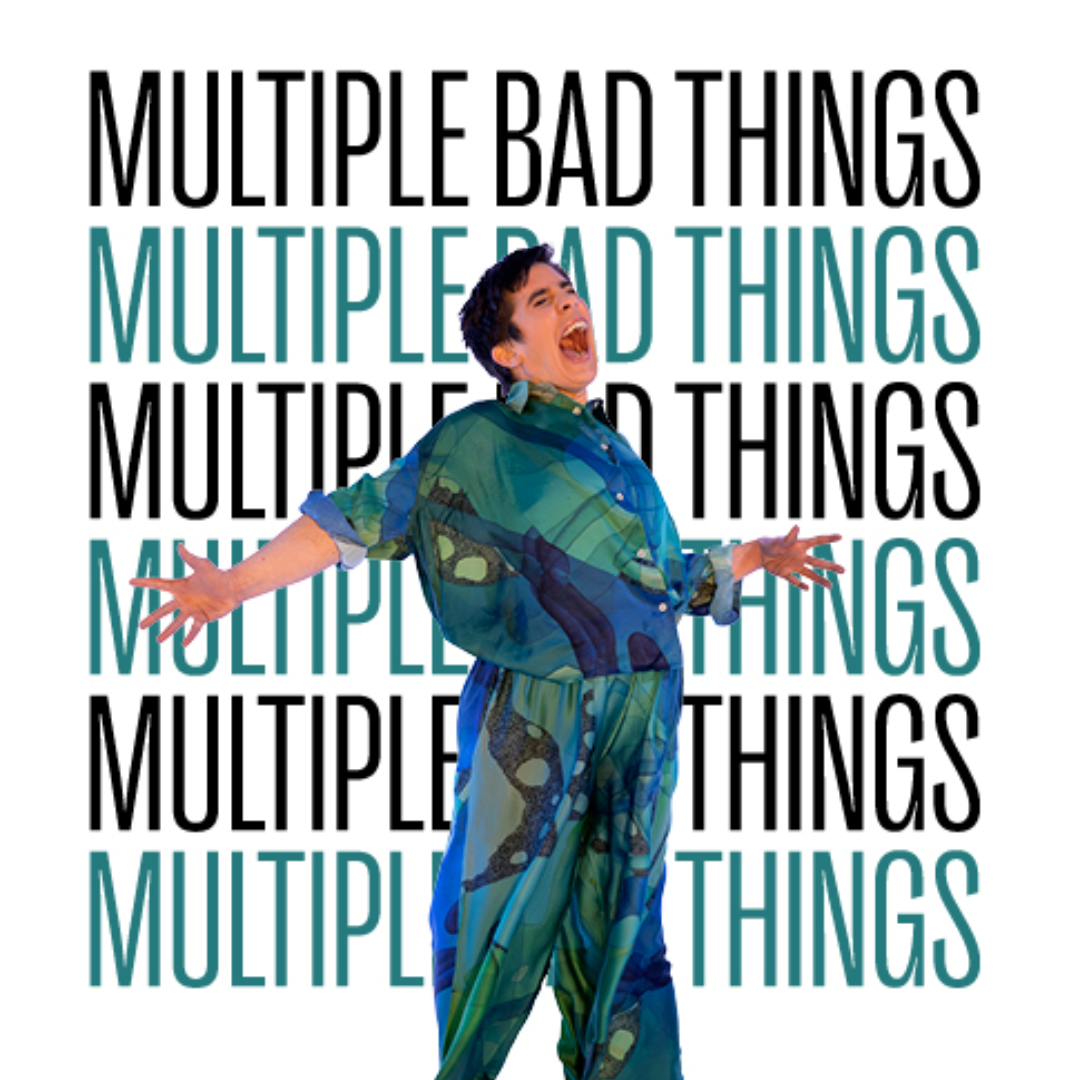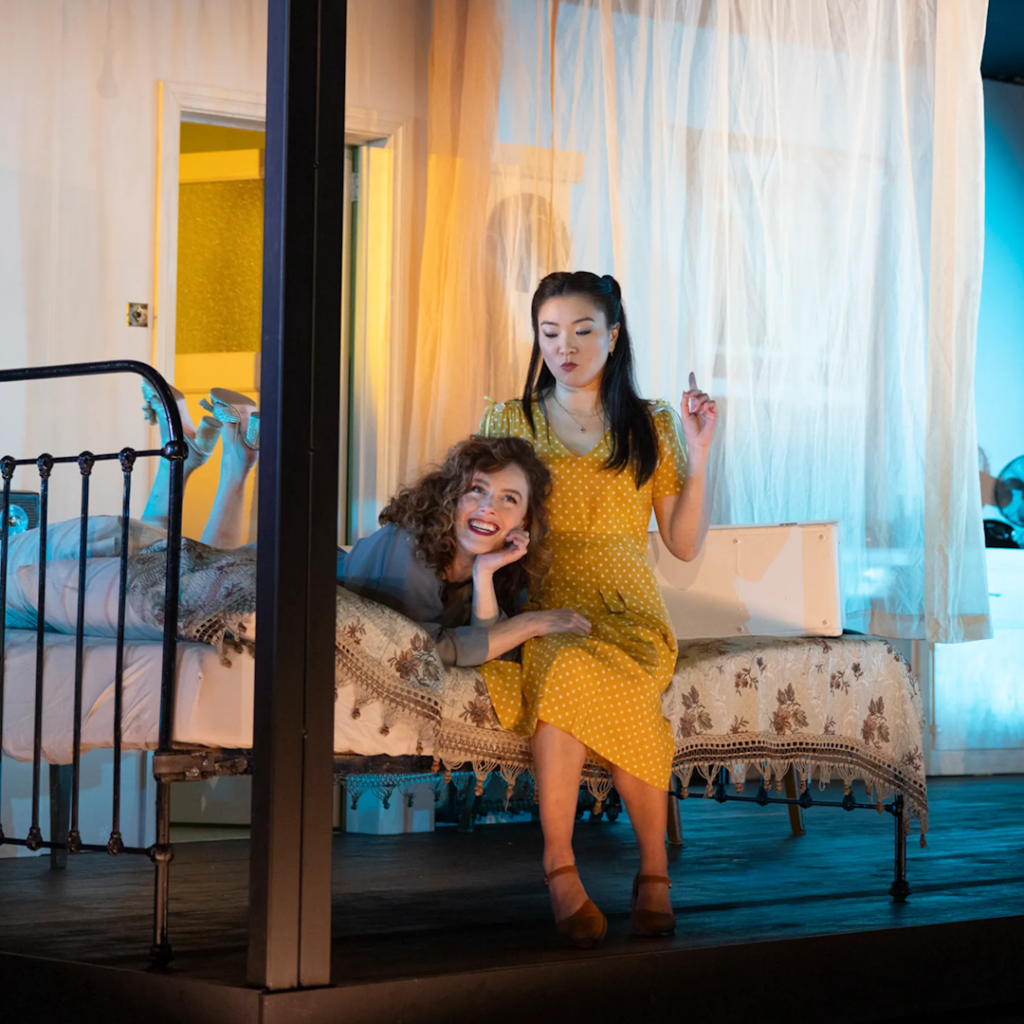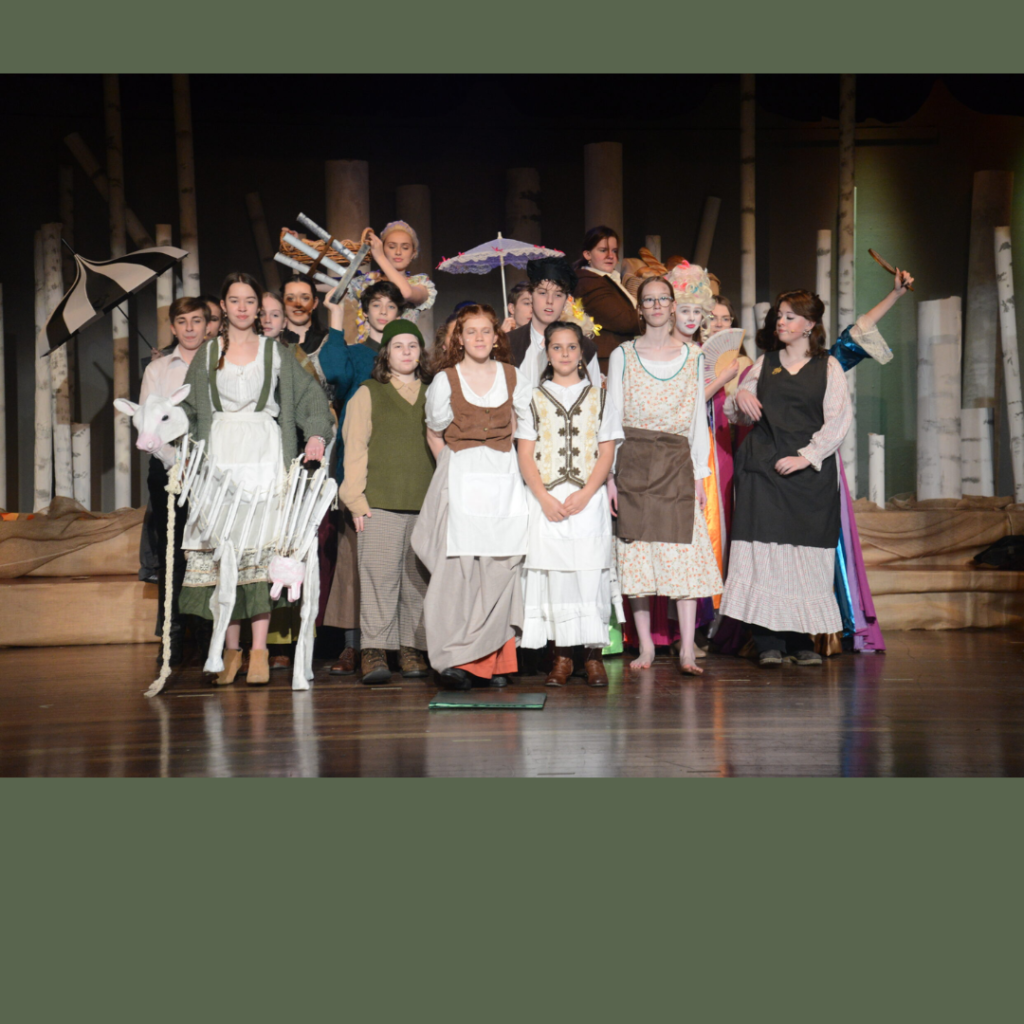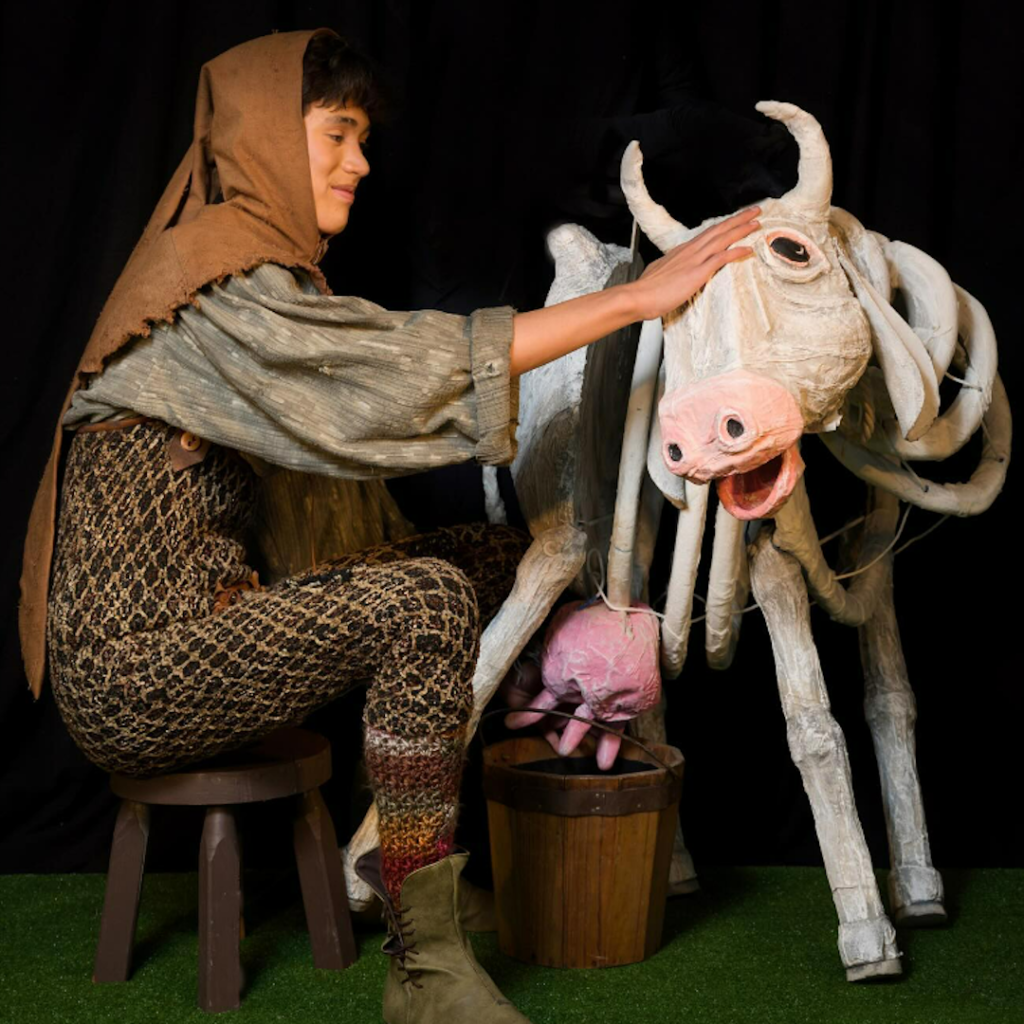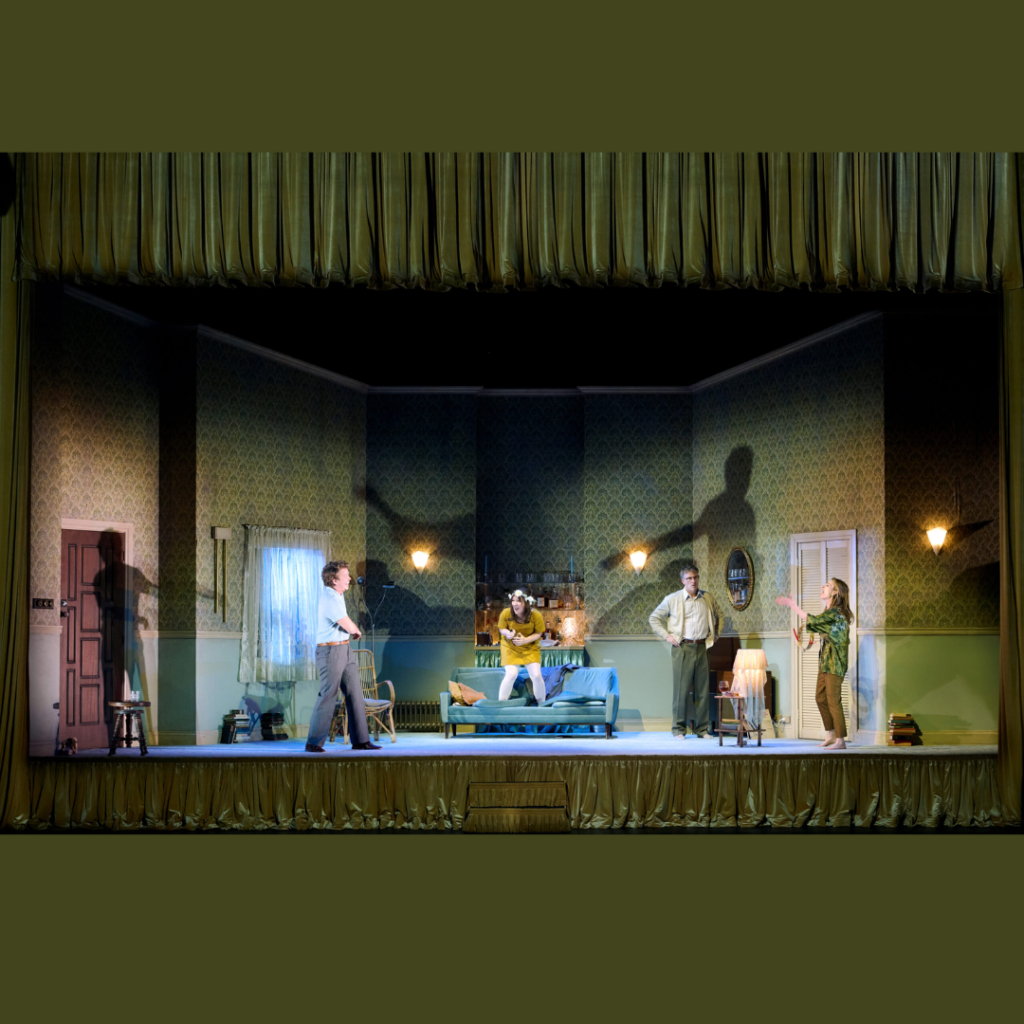Just what are people capable of? Can we exist in harmony? Is symbiosis even possible? Those questions are explored in the darkly comedic, at times disturbing, strikingly original theatrical work Multiple Bad Things. The actors are physically and mentally challenged, and diverse. They are in a warehouse trying to erect the skeleton of a house (I admire Anna Cordingley’s set design), but struggle to find cohesion. In short, they are not on the same page.
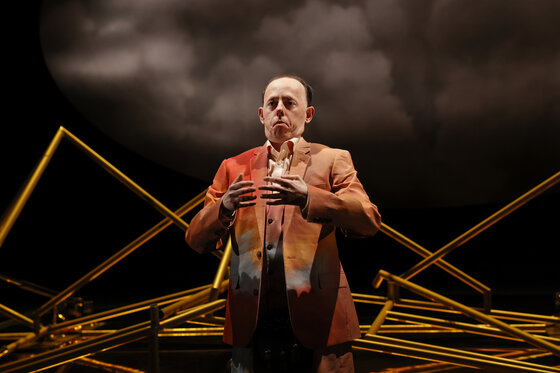
The tone is set when one proffers that she spilt her tea that morning. The response is hilarious, but particularly dark – a shopping list of the increasingly bizarre things that are far worse than that. Black humour is on full show. Multiple Bad Things deals with issues of inclusion and equity, and as the name suggests, it is often far from pretty.
Simon Laherty is the first to take to the stage. He sets the parameters of what we are about to see, saying it is “not real”, quickly adding that “theatre is not real”. He proceeds to shuffle towards a busy desk, whereupon sits a computer, and begins watching nature documentaries, including a lion devouring its prey. Then, one by one, the three other players enter.
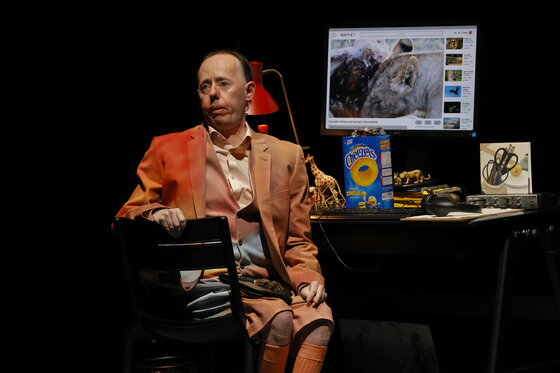
Sarah Mainwaring is trying to finish “construction” of the framing of the home. She is about to try to act as peacemaker in the stoush that follows. She becomes distressed by what is taking place, but in one of the funniest scenes in the production, when she turns to a call centre for help, the tables are turned. While she is waiting for her call to be answered, the lengthy recorded message becomes a parody of messages on hold.
Next up is Scott Price, who finds his place lying back on a blow up plastic flamingo and simply wants to be left alone. When asked by Sarah how he is, his response says is all: “I’m just making the most of my life.” But the real thorn in his side comes with the emergence of Bron Batten, who, although able-bodied seems to have a large chip of her shoulders. She is self-righteously indignant.
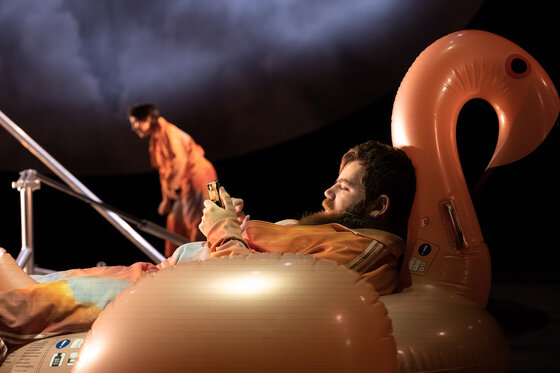
She talks of having “disadvantages” because of who she is and that “not all inequity is created equal”. In so doing, she seems to be suggesting that others, such as Sarah and Scott, get a softer run. There is also a physical dimension to Bron’s interaction with Scott. When Scott reaches out, he is rejected, while Bron’s sense of humour doesn’t play favourably with Scott.
Meanwhile, as the house frame is all but complete, it is left to Simon to calm the waters with Sarah. Multiple Bad Things is a reflection of an increasingly troubled world – one in which unresolved conflict is wearing and dangerous. In the play, civility slips, bad behaviour escalates and reality is distorted. There is no escaping the suffering.

A sense of impending doom is also reflected in the soundscape, which has been assembled from field recordings of bad things. The affecting score is by Zoë Barry. I was utterly captivated by the work, which is unconventional, challenging and highly creative. For more than 30 years, Back to Back Theatre has been upending the assumptions of what is possible on stage and so it is again here.
Multiple Bad Things shines a spotlight on the disenfranchised and the vulnerable, the result of which is absorbing theatre. The actors do a terrific job tackling empathy, borders, territory, extinction and identity politics. Unsettling, the offering causes one to immediately reflect and gasp. I was left asking just how self-aware are we?
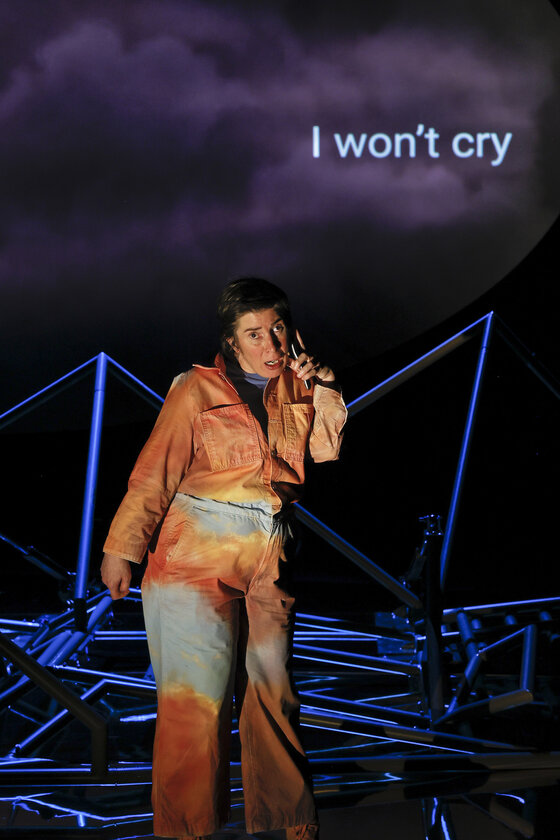
Bravo to directors Tamara Searle and Ingrid Voorendt for giving the piece room to breathe. Its impact is far greater as a result. With a running time of 60 minutes, Multiple Bad Things is on at Malthouse Theatre until 9th June, 2024.

